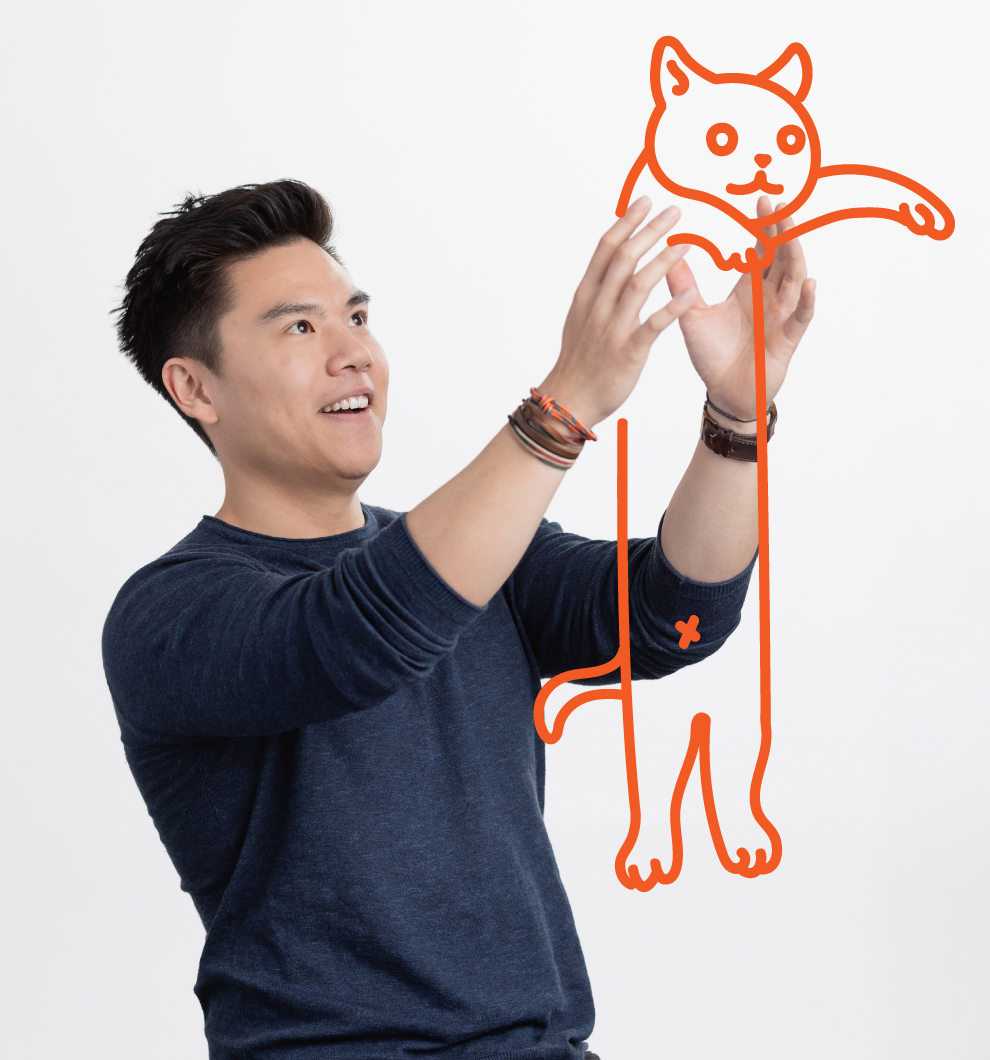Marketing agencies, in our experience, often wrestle with how to approach and use industry research. While it’s easy to cherry-pick stats for the sale presentation, it’s harder to develop a sound perspective on a topic. Sometimes, we want to use research but can’t. Perhaps the team is “too busy,” or the competing priorities win over research.
At Periphery, we use marketing industry research in our communications because our offer is still relatively unknown. This article will explore how we do so with an interview with our CEO, Alex Wan.
Who is Alex?
Alex Wan is the Co-Founder & CEO of Periphery Digital. He has a penchant for exploring new ideas and building relationships. Alex is a recipient of Business in Vancouver’s 30 Under 30, and we invite you to learn more about him on Periphery’s About Us page (along with the rest of our team).
This interview follows a recent article of ours exploring 3rd party sources about Chinese Consumer Insights. We invite our readers to review that source-list should there be an interest.

The Interview
Q: Approaching research, do you conduct the research yourself, Alex?
Alex: Yes – research on topics is essential for making decisions for both our business, as well as for our clients. There is research involved to different degrees for almost every decision.
Q: What topics do you typically research?
Alex: Usually, a combination of marketing-related research, market trends, technology options, as well as general business and entrepreneurship-related topics that can be used for ourselves, or client-related matters.
Q: Do you follow a specific research process or method?
Alex: Nothing specific, but it’ll always generally start and end with a Google search. Once I’ve identified a topic I want to look more into, I generally will make it a point to double-check the source and to confirm if there are other publications/resources that either confirm or contradict the findings – i.e. never use only one source.
Q: Do you have a few sources you visit frequently, or do you start with a question and search outwards from there?
Alex: Usually, start with the question and search outwards from there; I don’t usually stick to one primary source or site, as sometimes there may be ulterior motives and reasonings from each source. Double confirmation and due diligence is a necessity.
Q: This is about making research actionable. What’s the line between reading something interesting and having it influence an actual business decision?
Alex: Most oftentimes, if it’s business-related, I have to see the potential for scale, or if I can see case studies that another organization has utilized the research, and actually benefited from it. If I don’t see any previous use cases, I will research the problems it might solve, and to see if I’m not the only one experiencing the same problem – I would then try and implement to see if it might help solve the problem.
Q: Many companies today are known for creating an argument or a case first, and then researching topics to support their views. Some think it’s perfectly fine. Others believe it can be excessively self-serving. How do you feel about this?
Alex: There is a time and place for that, depending on the situation or problem, but oftentimes this can also lead to confirmation bias. Correlation does not always equal causation.
Q: Do you follow this or use an alternative method? Why or why not?
Alex: I think it’s a good way to start an argument or case – but not a good overall solution. Research is meant to help determine a hypothesis, and should always provide both sides of the argument; it’s rarely binary unless it’s equation-based.
Q: Do you believe it’s worth it to pay for industry research or a good research report? Why or why not?
Alex: Yes – as long as the third party is not biased and/or has no financial motive or gain for the research, i.e. Cigarette companies conducting research of cause of lung cancer.
Q: What do you look for when deciding to make this purchase?
Alex: Past research, past clients, if past research was used to deploy anything, their credibility in their related industry/category.
Final Thoughts
Research validates opportunities, warns of impending risks, and offers unique insight. The benefits are better decisions and more successful campaigns (among many others). Consumer insights allow our agency to develop a broader perspective for more informed, thoughtful, and strategic decisions.
As marketers, we all need to know why people buy if we’re going to do great work. A rich and informed perspective on psychology, culture, social forces, and economics can elevate anyone’s ability to win in this industry.
Research is just one example, and we hope this article gave you some insight on how to approach and use research for yourself. If you’d like to learn more, you can contact us or subscribe to our weekly email.
Thank you.


